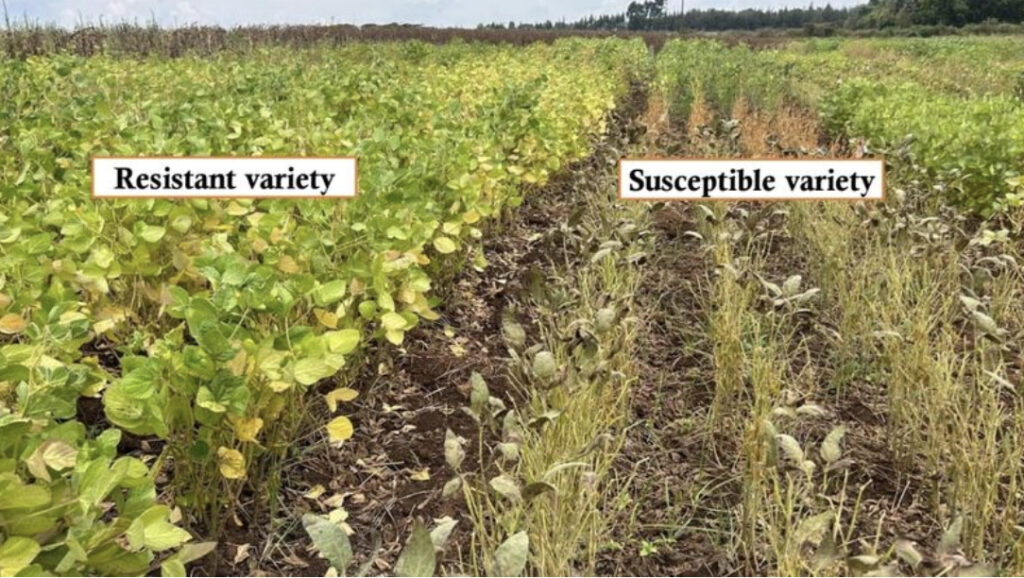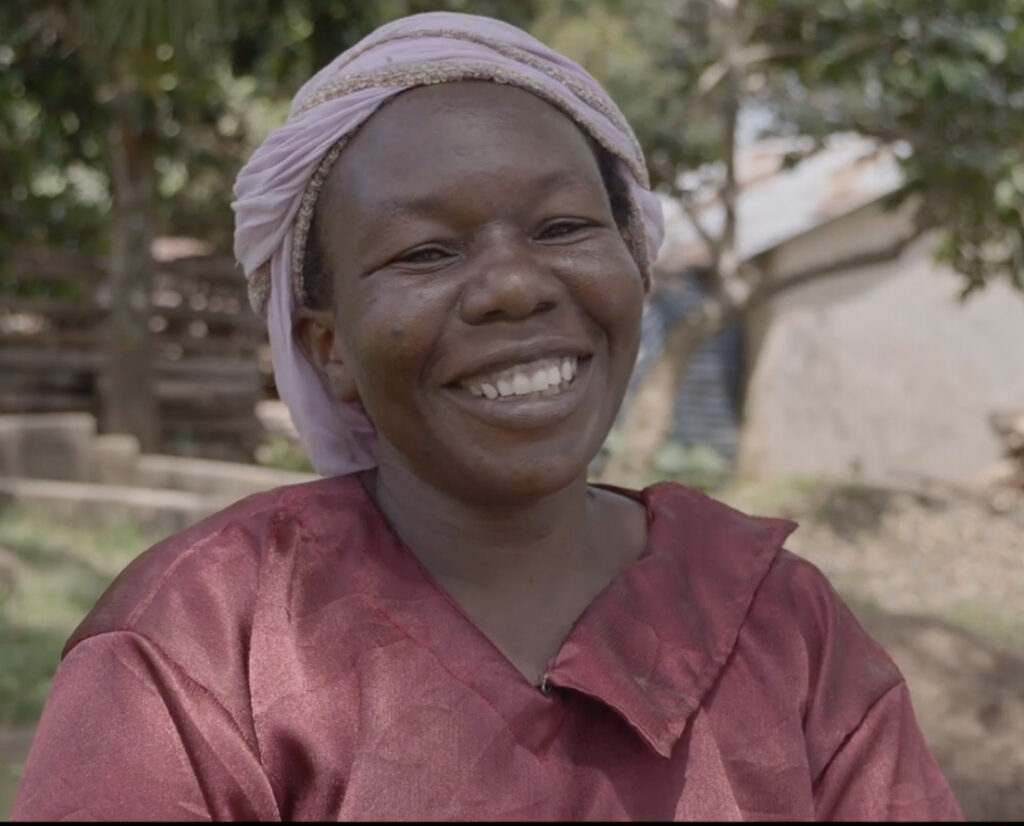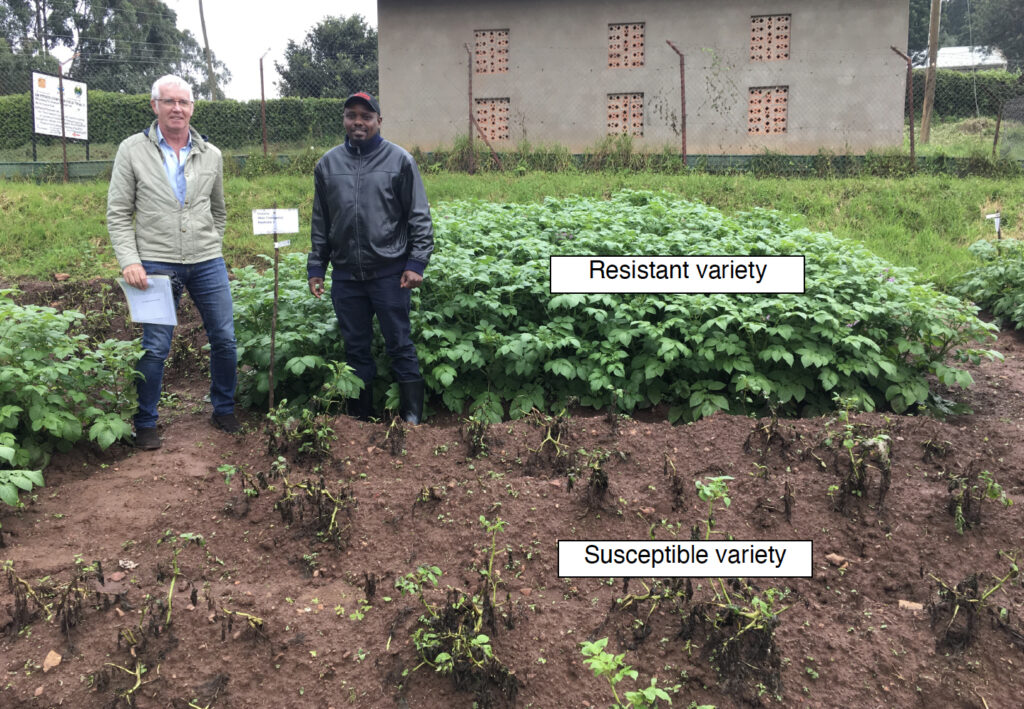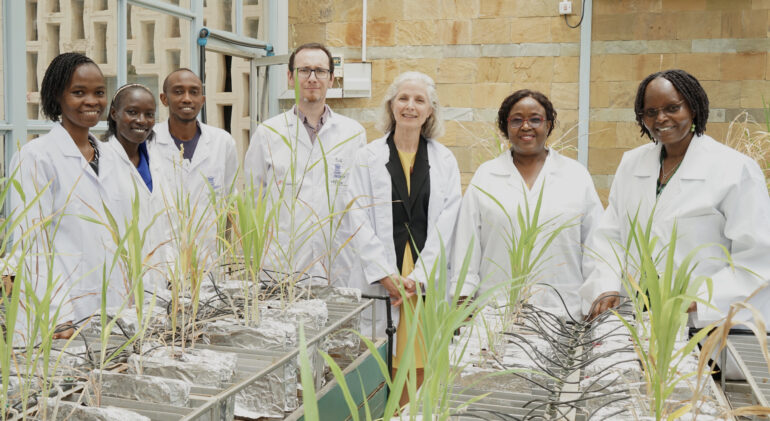Access to nutritious food is one of the most basic and important human rights. Yet, more than 700 million people faced hunger in 2023. A staggering 35 percent of the global population, equivalent to 2.8 billion people, experience “hidden hunger,” which is more than restricted access to food, but the lack of adequate nutrition.
Many factors, such as global conflicts and trade disruptions, have brought to light the complexities and fragility of our global food systems. But an often unrecognized and far more pervasive threat to our food supplies is crop disease. Every crop is susceptible to plant pathogens and pests that cause yield losses of up to 40 percent every year, by some estimates, despite more than $15 B in crop protection chemicals.

Some diseases can cause total crop failure. Soybean rust, an airborne fungus, can wipe out 90 percent of tropical soybean harvests within just three weeks of infection. Chemical treatments are an important tool that can help manage some crop diseases, and in Brazil, a country that produces nearly 40 percent of the world’s soybeans, there would be no crop without them. In fact, Brazil spends more than $2 billion on fungicides annually. However, chemicals lose their effectiveness over time as pathogens adapt. Excessive chemical use can have a negative impact on the environment, making it an inadequate long-term solution.
Using chemical solutions to save crops also isn’t an option for all farmers. Farmers in low and middle-income countries have limited or no tools to protect their crops, and can’t afford to invest in chemical treatments.

Soybean is a favorite crop of Rose Kaunda, a small-scale farmer, entrepreneur, employer, and widow with five children. On her 4-acre farm in rural Kenya, Rose grows soybeans to help feed her children and generate income, yet crop diseases are a constant threat.
“Soy is my daily basis for food in everything,” Rose stated in a video interview. “With leaf rust, the yield will come low. [The year] 2016 was very bad. The whole soy bean got damaged, and the harvest was very little. I feel very bad, because I lost. I spent a lot of money on labor, and I don’t harvest, and that’s my income.”
Harnessing Science
The good news is that breakthroughs in plant science, including the fields of genomics, pathology, gene editing, and artificial intelligence, have opened new pathways to breed more robust crops that can withstand diseases, pests, and climate shocks. But breakthroughs need refinement to be products. Too often, such efforts don’t happen.
Enter 2Blades, a Chicago-based non-profit organization dedicated to advancing cutting-edge scientific innovations to protect crops globally against the most devastating causes of pre-harvest losses, while using less land, water, and chemicals.
2Blades turns discoveries into working solutions — healthy plants — in the field. It uses a dual-market model to deliver benefits to both large commercial growers and smallholder farmers in food-deficient countries, ensuring that farmers from Illinois to Zambia have access to resilient crops.

Co-founder Diana Horvath, a Northwestern University-trained scientist, was motivated by the potential to make meaningful improvements through modern breeding tools after experiencing disease and pest challenges in Africa.
For 20 years, 2Blades has helped to achieve effective resistance against some of the most devastating threats to major crops like wheat, corn, soybeans, and potatoes. Examples include:
- Protecting soybean yields and reducing chemical use in Brazil: 2Blades discovered genes from soy relatives and delivered these to leading seed companies. Soy plants with these genes stay healthy in the presence of soybean rust and are on track to arrive at farms in Brazil. 2Blades is now working to do the same for African farmers.
- Reducing potato losses and chemical usage in East Africa: 2Blades has helped the International Potato Center breed potatoes that don’t succumb to Late Blight, the disease that caused The Irish Potato Famine and is still a serious threat to potatoes. Farmers in Kenya will have new varieties that will reduce chemical sprays and increase farmer incomes by 40 percent.
Strengthening regional capacity is critical to the long-term success of food systems. 2Blades supports African scientists with scholarships and mentorship opportunities, and it continues working closely with local research institutions and universities to support human capital development.
How to Help
2Blades is committed to sustainable, inclusive food systems. There are many pre-harvest threats to tackle, and with the recent withdrawal of investments in international agricultural development by the United States, many European countries and private foundations, philanthropic support has become crucial to realize the transformative power of innovation.

This post was submitted as part of our “You Said It” program.” Your voice, ideas, and engagement are important to help us accomplish our mission. We encourage you to share your ideas and efforts to make the world a better place by submitting a “You Said It.”

Diana Horvath is the co-founder and president of 2Blades, a novel, non-profit, agbiotech company that develops and delivers genetic solutions to pre-harvest crop losses. Prior to 2Blades, she served as Science Director at ATP Capital, a venture capital firm that invested in companies developing biotechnologies for improved agriculture. Diana has focused her career on advancing plant science to solve real-world threats to crop production for large-scale and smallholder agriculture.
Diana received her Ph.D. in biochemistry and molecular biology from Northwestern University. A year spent conducting research on maize and millet production in southern Africa at the Department of Agricultural Research in Botswana helped drive her ambition for making science reach impact in the field.

